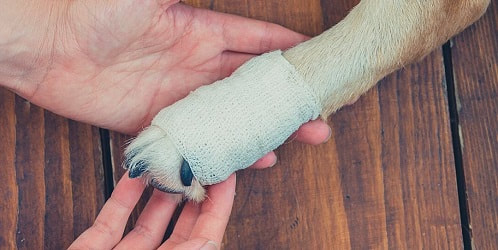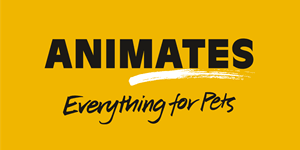Vet Services, Treatments and Prices - The Definitive New Zealand Guide
Our guide explains how vets operate in New Zealand, the different types of vet providers, the main types of appointments and a breakdown of the costs associated with each appointment. We also walk through the top facts you need to know and the most frequently asked questions New Zealanders have regarding vet services.
Updated 22 July 2024
Summary
Disclosure regarding ownership structure of brands and pet franchises:
To help you understand vet fees, the vet industry, vet clinics (local operators vs branded networks etc.) and everything related, our guide covers:
Summary
- Going to a vet is the first reaction for many New Zealanders when their pet is looking rough or acting up. However, vets aren't free. Many local vet clinics seem to charge different prices and provide various services.
- As a pet owner, you want the best quality and treatment possible for your pet. However, it can be confusing when there are so many to choose from (and no clear comparison between them).
- As a background, there are four main types of vet services operating throughout New Zealand:
- Flagship franchises (such as Animates, Pet Stop, CareVets, Pet Doctors and Vetlife)
- Local/regional/national independent vets (such as IndieVets and Vetent)
- Pet product stores (Petstock)
- Non-profit organisations (such as the SPCA or NZVA).
Disclosure regarding ownership structure of brands and pet franchises:
- Where MoneyHub has listed pet franchises, we use the "franchise" terminology to explain the instance where a branded store is opened with similar characteristics to the parent company, predominantly for business expansion.
- For example, the Animates store in Botany will operate with similar product lines and services as the Animates store in Blenheim.
To help you understand vet fees, the vet industry, vet clinics (local operators vs branded networks etc.) and everything related, our guide covers:
- Why are vet fees commonly seen as 'expensive', and are the fees unfair?
- What are the main types of vet appointments/services and typical prices?
- Understanding the Key Vet Industry Body: The Veterinary Council of New Zealand
- Where can I find the best vet clinics in New Zealand?
- Who owns the big vet chains, and why does it matter?
- Must-know facts about vet pricing
- Frequently Asked Questions
Why are vet fees commonly seen as 'expensive', and are the fees unfair?
- Vet fees are costly, but this does not make them 'unfair'. Unlike government-funded healthcare, vet fees are fully user-pays, and there is no regulation around pricing. As a result, vets compete against one another for business.
- While, in theory, you can compare fees by contacting vets, it isn't easy in practice. For example, one vet may be able to diagnose on an examination while another vet may wish to carry out x-rays and other tests first, which adds extra costs.
- Whether or not your pet is insured, the best approach is to question a vet closely and ask them to explain the rationale for any recommended treatment or procedure. Vets must be able to justify what they're recommending and have their rationale make sense.
What makes vet fees so expensive?
It's not cheap to run a vet clinic or animal hospital. Industry research suggests that the breakdown for any treatment is as follows:
With vets 'only' receiving around 20% of the vet bill as income, it's clear that the overall cost is driven by multiple components that don't have too much room to move. For example, even if vets worked for free, the bill would only reduce by 20%. Vets, on average, earn around $80,000 to $100,000 per stats from Careers NZ and ENZ.
Know This: Health care is expensive for humans and animals. With no government assistance for veterinary care, the pet owner pays the full amount due. In addition, vets incur expensive medical equipment costs - blood testing machines, x-rays, scanners and monitors are just some of the items needed. In addition, all of the equipment needs to be maintained and replaced after a certain time which keeps costs high.
- 15% is taken as GST
- Approx. 20% pays for veterinary nurses, receptionists and other support staff
- Approx. 20% pays for the cost of drugs and other items used in treatments and procedures
- Approx. 20% pays for overhead (building, heating, lighting, insurance, management etc.)
- Approx. 20% is the vet's income
With vets 'only' receiving around 20% of the vet bill as income, it's clear that the overall cost is driven by multiple components that don't have too much room to move. For example, even if vets worked for free, the bill would only reduce by 20%. Vets, on average, earn around $80,000 to $100,000 per stats from Careers NZ and ENZ.
Know This: Health care is expensive for humans and animals. With no government assistance for veterinary care, the pet owner pays the full amount due. In addition, vets incur expensive medical equipment costs - blood testing machines, x-rays, scanners and monitors are just some of the items needed. In addition, all of the equipment needs to be maintained and replaced after a certain time which keeps costs high.
Is Pet Insurance cost-effective?
Pet insurance is arguably the easiest way to budget for pet care.Pet insurance protects pet owners from big bills that are, for many people, difficult to afford. Pet insurance policies offer protection to cover necessary vet bills if your pet has an accident or gets sick. Vets have more flexibility in treating an insured animal, given they don't need to give estimates and alternatives to the owner. Pet insurance policies range from 'accident only' to 'premium' - insurers usually offer three or four types of policies to meet the needs of different budgets. We suggest reading our pet insurance guide and getting quotes from various insurers to understand what it will cost each year.
What can I do if I can't afford pet insurance and worry about vet fees?
In such a case, we suggest the following:
- Phoning local vets and asking for estimates
- Communicate your financial position early - vets will acknowledge that and work within your budget.
Get Pet Insurance Quotes With Our Top Insurers
|
Our pet insurance research highlighted a shortlist of price and value-leading pet insurers.
|
Christopher Walsh
MoneyHub Founder |
What are the main types of vet appointments, treatments, services and typical prices?
Our research team publishes a table below that separates the types of appointments, a general description of what that appointment entails, and the typical cost you might expect when going to one of these appointments. We have sourced this through online pricing research, discussions with industry veterinary professionals and global vet pricing benchmarks.
However, it's important to remember that the prices below are an estimate and that prices can vary heavily (i.e. you may end up paying more or less) depending on the type of pet you have, its age, breed, size and whether or not you have memberships that offer discounts or pet insurance that partially offsets the costs of these appointments.
Where possible, we have taken the median range for these appointment costs and have discounted the extreme values as they are uncommon and unlikely to be accessible by the average New Zealander.
Generally:
However, it's important to remember that the prices below are an estimate and that prices can vary heavily (i.e. you may end up paying more or less) depending on the type of pet you have, its age, breed, size and whether or not you have memberships that offer discounts or pet insurance that partially offsets the costs of these appointments.
Where possible, we have taken the median range for these appointment costs and have discounted the extreme values as they are uncommon and unlikely to be accessible by the average New Zealander.
Generally:
- The larger the pet, the more expensive the appointments will be.
- The more specialised or complex the appointment type (such as anaesthetics or surgery), the more expensive the appointments will be.
- The more rural or less competitive the area (there are no vet alternatives), the more expensive it may be.
- The more well-known and experienced the vet clinic, the more demand it will likely have, and the more premium its prices will be.
- Many common appointments (such as consultations, vaccinations, desexing and microchipping) will be set as a fixed fee by vet clinics due to how often they're done and how easy they are to do. This fixed fee structure usually means the costs will be in a tighter band compared to the more uncommon appointment types (such as CT scans and surgeries), which can fluctuate wildly in price given how specialised and uncommon the procedures are.
Appointment Type |
Description |
Price Estimate |
Consultation |
A consultation is a general check-up (usually in person, although this is also done over the phone) where you can explain your pet's situation to the vet doctor, describe what seems to be the problem and ask for advice. A vet doctor will then diagnose the pet with an examination, conduct further research or prescribe medications depending on the diagnosis. Consultations are normally brief (15 minutes but can go up to an hour) and are a good time to ensure that your pet is healthy, behaving normally and has no underlying concerns. It's recommended to go for a general consultation with a vet doctor at least once a year, even if nothing seems off with your pet. The earlier a vet doctor can spot potential issues, the more likely your pet will make a full recovery (and the cheaper it will be for you as the pet owner). |
$50 - $80 |
Vaccination |
Vaccinations are one of the first things responsible pet owners should do to protect their pets against major diseases. Usually, these are easy to administer and relatively inexpensive. In addition, vaccinations are an easy way to ensure you don't run into unexpected vet bills due to common illnesses early on in your pet's life. Most vaccinations must be administered within the first 1 - 4 months of your pet's birth and are usually staggered across this period. Once your pet is fully vaccinated, it may need to receive a booster vaccination every year or so as an adult to keep up its immunity to persistent diseases. |
$40 - $110 |
Desexing/ Neutering/ Spaying |
Unless you intend to become a registered pet breeder, getting your pet desexed is a common choice to avoid unwanted pets you can't take care of and unexpected expenses associated with maintaining multiple pets. Studies have shown that pets live safer, longer, healthier lives if desexed. Not only that, but desexing helps to ensure that the population of homeless animals in New Zealand is kept under control. Desexing ensures that your pet avoids reproduction-related problems (such as cancers), encourages more social behaviour (reduced aggression) and reduces the risk of getting hit by cars (due to less inclination to roam). |
$120 - $400 |
Maintenance (Cleaning/ Grooming/ Nails) |
Pet maintenance can include anything you might do yourself as a pet owner but would like to outsource to a vet. For example, trimming your pet's nails, washing your pet or grooming and combing your pet are all activities you could do at home or get a trained vet to do. Usually, these activities are relatively inexpensive for vets to do. |
$20 - $50 |
Microchipping |
Microchipping is one way to keep track of your pets in New Zealand. However, because microchipping is implanted beneath the pet's skin, it is much harder to detect and remove than other identification methods, such as collars or tags. Microchipping for some types of pets is legally required. For example, dogs in Auckland must legally be microchipped within two months of first registration. However, there is no mandatory requirement for cats to be microchipped. |
$35 - $70 |
Microchipping Registration |
Microchipped pets will usually be registered with the New Zealand Companion Animal Registry. This register is a national database where all microchipped animals are listed. This database ensures that if your pet is lost and is brought into a vet clinic, the vet doctor can track down your pet's file and notify you that your pet has been found. |
$35 - $50 |
Emergency Vet Consultations, Visits and Hospitalisation |
If something has happened to your pet in the middle of the night, your "usual" vet may not be available. In these instances, accident and emergency (A&E) vet hospitals will be one of your only options. Unfortunately, these clinics usually only operate from evenings to mornings and charge substantially higher consultation costs than during the day. Unfortunately, they can charge these prices as there are very few alternatives at that time of the night, and they likely have to pay their staff higher rates for non-standard working hours. |
$150 - $250 |
Dental Care |
It's important to ensure that your pet maintains good overall health; dental care is a significant part of this. Veterinary dental care covers a range of checks and procedures related to oral health, including cleaning, adjusting, filling, extracting or repairing your pet’s teeth. Examples of common situations requiring dental care include bad breath, broken teeth, swelling or bleeding in the pet's mouth or behavioural changes (such as reduced appetite). Dental care costs can vary widely due to the type of dental treatments applied. For example, prescribing a certain food or medicine to alleviate a pet’s bad breath will be relatively inexpensive. However, having to put a pet on anaesthesia and operate on a broken jaw may cost significantly more. |
$100 - $1,000 |
Anaesthetics |
During most operations, your pet will likely need to be put under anaesthesia to minimise pain and ensure the operation is conducted as smoothly as possible. However, the type of drug and level of equipment used when it comes to anaesthesia varies heavily by each vet clinic/hospital. For that reason, the cost of anaesthetics can vary. Many vet doctors will perform a pre-anaesthetic check and blood test before deciding whether anaesthetic is necessary (and the right procedure). |
$100 - $500 |
X-Rays |
Suppose a vet doctor determines that there may be something wrong with your pet. In that case, they may request a non-invasive procedure, such as an x-ray, to identify the underlying cause or get more information before invasive surgery. Usually, these are common tests and are not as expensive as other bespoke non-invasive scans (such as a CT scan) |
$100 - $300 |
CT scans |
CT scans are one of the more expensive appointment types as the machines used for pets are usually extremely expensive. Further, many pets may need a CT scan to understand what's wrong with them, meaning the waiting list for these tests can be long. |
$1,500 - $2,000 |
Surgery |
Pet surgeries are known as operations that involve an invasive procedure. In contrast, non-invasive surgeries can also be done on your pets, which are separated above. Examples of non-invasive surgeries include x-rays, CT scans and MRIs. Common pet surgeries include:
While surgeries are not a common occurrence for many pets early on in their life, it becomes a harsh reality that surgeries will become increasingly necessary as a pet gets old (particularly if it's older than the average age that the pet breed lasts). For these types of pets, it's recommended to purchase comprehensive pet insurance BEFORE they turn a certain age (usually between 5 - 8 years old) to ensure that your pet is covered. After this age, insurers will not normally provide pet insurance as the risks of surgery rise exponentially as the pet ages. In addition, pet insurance providers are usually not willing to provide this protection, given how likely it is that your pet will require surgery. |
$1,000 - $5,500 |
Euthanasia / Cremation |
In some situations, euthanasia can be the right decision to alleviate pain and suffering for your pet that's lived a long and happy life. However, in these instances, your pet may have a long-term disease with no short-term solutions. Costs will vary widely depending on whether euthanasia services are done at a vet clinic or requested in the family home. Our guide to pet euthanasia has more details. |
$200 - $400 |
Sources of our research:
Get Pet Insurance Quotes With Our Top Insurers
|
Our pet insurance research highlighted a shortlist of price and value-leading pet insurers.
|
Christopher Walsh
MoneyHub Founder |
Where can I find the best (and cheapest) vet clinics in New Zealand?
Because the majority of vet clinics in New Zealand are local or independent franchises, the market for vet clinics is highly fragmented. This dispersion makes it hard to compare all the vet clinics without taking your pet to dozens of vet clinics and requesting pricing. For many similar reasons there's not a commonly known vet clinic that is the "best" in New Zealand.
Disclosure regarding the BestPractise accreditation scheme and NZVA membership:
The New Zealand Vet Association (NZVA) offers BESTPRACTISE accreditation, which identifies vet clinics and hospitals that offer pet owners the best possible standard of veterinary care. BESTPRACTICE is voluntary, meaning a vet clinic/hospital has elected to subject their practice to rigorous testing repeated through an audit every two years.
BESTPRACTISE takes into account several factors before providing accreditation, including:
The NZVA has established a database of all their vet clinic/hospital members in an easily searchable map. The tool also allows you to filter based on whether you want a BESTPRACTISE clinic/hospital and segmentation by practice type. For more information on the NZVA, check out their website.
Disclosure regarding the BestPractise accreditation scheme and NZVA membership:
- It's important to note that when we refer to the BESTPRACTISE scheme below, we are not commenting on the quality or standard of veterinary care applied by each vet.
- The BESTPRACTISE scheme predominantly focuses on administrative protocols and generally does not influence the standards of veterinary care.
- Therefore, the BESTPRACTISE accreditation scheme and the NZVA membership may not lead to a more competent veterinarian or higher quality service level.
The New Zealand Vet Association (NZVA) offers BESTPRACTISE accreditation, which identifies vet clinics and hospitals that offer pet owners the best possible standard of veterinary care. BESTPRACTICE is voluntary, meaning a vet clinic/hospital has elected to subject their practice to rigorous testing repeated through an audit every two years.
BESTPRACTISE takes into account several factors before providing accreditation, including:
- Service: How professional and customer-friendly is the vet clinic/hospital? Are they available for extended periods (including out-of-normal hours)?
- Training: Are staff highly experienced, professional and competent in all areas of animal health, welfare, veterinary surgery and medicine? Do they continuously learn and upskill themselves to continue providing the best treatments backed by research?
- Facilities: Does the vet clinic/hospital have clean, modern equipment and facilities to ensure a quality experience for you and your pet?
- Information: Does the vet clinic/hospital maintain quality records of pets, clients and appointments to ensure it’s easy to retrieve prior medical history for your pet?
- Safety: When prescribing medication for your pet, does the vet clinic/hospital correctly label the medication and keep an organised system to reduce the risk of wrongly prescribing medication?
The NZVA has established a database of all their vet clinic/hospital members in an easily searchable map. The tool also allows you to filter based on whether you want a BESTPRACTISE clinic/hospital and segmentation by practice type. For more information on the NZVA, check out their website.
Understanding the Key Vet Industry Body: The Veterinary Council of New Zealand
One of the key industry bodies to be aware of is the Veterinary Council of New Zealand (VCNZ). As a background:
The VCNZ carry out several key functions as set out by the legislation above, including:
As set out by the Veterinarians Act 2005, all veterinarians in New Zealand must be registered with the VCNZ and maintain a valid practising certificate. For a detailed list of all the registered veterinarians in New Zealand, the Veterinary Council of New Zealand has a comprehensive register that tracks all the vets in New Zealand (which can be found the Vet Council's website).
Another key framework the VCNZ establishes for the veterinary industry is the code of professional conduct. Examples of what the code of professional conduct covers includes:
For more information on the veterinary code of professional conduct, check out this link here.
- The VCNZ is a government body authorised by New Zealand legislation (the Veterinarians Act 2005) and plays a key role in the regulation, management and oversight of the veterinarian industry.
- Their mission is to build strong stakeholder relationships and improve the veterinary profession by setting high standards and executing them promptly and transparently.
- The VCNZ anchors itself on five key strategic themes: well-being, communication, relationships, quality and future scanning.
The VCNZ carry out several key functions as set out by the legislation above, including:
- Registration of new veterinarians (and re-registration/renewal of existing vets).
- Establishing the benchmarks and standards for the veterinary profession.
- Ensuring the current veterinarians are honest and competent.
- Ensuring the current veterinarians are certified, qualified and trained.
- Investigating any complaints filed about New Zealand veterinarians.
- Ensure that VCNZ is a consistent and fair regulator of veterinary standards.
As set out by the Veterinarians Act 2005, all veterinarians in New Zealand must be registered with the VCNZ and maintain a valid practising certificate. For a detailed list of all the registered veterinarians in New Zealand, the Veterinary Council of New Zealand has a comprehensive register that tracks all the vets in New Zealand (which can be found the Vet Council's website).
Another key framework the VCNZ establishes for the veterinary industry is the code of professional conduct. Examples of what the code of professional conduct covers includes:
- Client Relationships
- Animal Welfare
- Professional Relationships
- Veterinary Services
- Professional Integrity
- Veterinary Medicines
- Legislative Requirements
For more information on the veterinary code of professional conduct, check out this link here.
Who owns the big vet chains, and why does it matter?
An increasing number of commercial New Zealand vet clinics are owned by offshore conglomerates/corporates/private equity groups. We list the major players below:
Largest NZ Vet Organisations |
Owner/Ultimate Parent Company |
Animates is New Zealand's leading retail pet store with a national network of around 40+stores, 20 vet clinics, 30 grooming salons, and a strong e-commerce presence.
|
|
Pet Doctors New Zealand is currently 100% owned by Australian-based National Veterinary Care (NVC). There have been three relevant acquisition transactions related to Pet Doctors in the last few years.
|
|
100% owned by Australian-based Petstock Pty Ltd. Petstock was founded in 2002 by David and Shane Young. Petstock has more than 100 stores across Australia and 15 across New Zealand. |
Know This: In the last few years, an increasing number of roll-up acquisitions in quick succession led to heavy consolidation in the local and global vet industry.
- Outside of New Zealand, foreign regulators have noted this increased consolidation and are becoming more active in regulating and blocking some transactions. For example, as of 2022, the Federal Trade Commissioner (FTC) in the USA has been taking a more active role in protecting pet owners from the roll-up of veterinary services clinics per this source.
- In addition, the FTC actively requires vet clinics (and their private equity owners) to divest (sell to another party) certain clinics across the country to prevent anti-competitive and monopolistic actions.
- As an example, the FTC has conditionally approved JAB Holding Company (the owner of Pet Doctors New Zealand) to purchase offshore veterinary clinic company Ethos (USD 1.65 billion) on the basis that it divests (sells off) several clinics in certain areas per the FTC's press release). For more details on the court case, check out this link here.
- Another example is VetPartners' acquisition of Goddard Veterinary Group. In late 2021, the Competition and Markets Authority (CMA), the UK's antitrust and competition regulator, flagged several concerns regarding the acquisition. This announcement has effectively meant that the companies could not be consolidated and had to run as separate entities, impacting the ultimate value and synergy of the acquisition. You can find more information on the deal and the subsequent ruling here.
Key implications of offshore ownership for New Zealand pet owners
There are a few implications of having the majority of large branded vet clinics owned by offshore conglomerates/private equity:
1. General lack of control over financials and payments
2. Vet clinics affiliated with conglomerates can cut prices (adopt loss leader strategies) which puts cost pressure on competitors (such as independent or local vet clinics)
3. A higher need for regulation in the New Zealand veterinary sector to prevent anti-competitive / monopolistic practises
1. General lack of control over financials and payments
- Vet Clinics tied to conglomerates or offshore parent companies often have less control over their ability to make financial allowances for pet owners or animals with limited funding.
- These firms have been criticised for being "ruthless" regarding price rises and limited access to essential services due to company policy or a general lack of funding.
- This operating model contrasts with independent vets, who are usually more flexible and lenient when paying for vet services.
2. Vet clinics affiliated with conglomerates can cut prices (adopt loss leader strategies) which puts cost pressure on competitors (such as independent or local vet clinics)
- Vet clinics/suppliers that operate as a part of a larger conglomerate or group (such as Animates or Pet Doctors) allow for significant economies of scale and cheaper costs due to more production volume or clinics.
- However, these economies of scale are usually unachievable by independent practices, given they will run as small or individual clinics. As a result, these independent practices cannot bring the negotiating power in supplier discussions and pricing discussions compared to the larger vet clinics tied to conglomerates.
3. A higher need for regulation in the New Zealand veterinary sector to prevent anti-competitive / monopolistic practises
- While there’s a strong regulatory drive to crack down on the veterinary industry offshore, consolidation and acquisition activity is happening at a much larger scale (with much more capital/funding) than in New Zealand.
- While New Zealand acquisitions done by offshore acquirers are still subject to Overseas Investment Office (OIO) approval above certain transaction value thresholds (which were temporarily reduced to $0 during COVID-19), the current regulatory drive in the New Zealand veterinary industry is relatively muted.
- Fewer industry players locally lead to tougher conditions for vet clinics and a higher likelihood of potentially anti-competitive practices.
Must-Know Facts about Vet Pricing
1. Do your research to find the vet clinic/hospital that suits your quality, trust and experience requirements.
- Hundreds of vets around New Zealand have different approaches, experience levels and consultation styles. While online resources such as the NZVA vet tool make it easy to search for high-quality vets, the best way to find out which vet is most suitable for you is to pick up the phone and have an initial consultation with each one.
- In addition, it's recommended to check in with up to five vet clinics/hospitals around your local area and get a sense of their pricing, how friendly they are and how likely they can service your pet's needs.
2. Vet prices vary significantly based on location, quality and breadth of services.
- Ultimately, vet prices are determined by many different factors. Some vets spend significantly more time tending to your pet than others.
- Premier vet clinics supposedly go the extra mile and do a higher quality job than regular vet clinics. Therefore, they will usually charge a premium for their services based on the knowledge, experience and care they provide above and beyond the status quo.
- While it's important to search for the best price, the price isn't the only consideration. Look for vet clinics/doctors that make the most sense for you, your financial situation, and your desired quality and level of service.
3. While you want to minimise costs, DIY home remedies are NOT an alternative to proper vet consultations.
- When in doubt, ask the vet. If you're worried about money, you may be tempted to use home remedies or ask people without a professional vet's qualification for help. Unfortunately, many common human products and medications can be very harmful when used on pets.
- Complications can be serious and lead to much higher vet costs. In some cases, it can lead to serious damage as symptoms may not be seen until serious damage has been done.
- While online communities and Reddit groups can provide a quick and easy way to check if there's potentially something wrong with your pet, it's important to recognise that these contributors may not be qualified to give advice. Additionally, if you've described the issues wrong or they've misinterpreted the facts, their advice may not be useful or safe for your pet's current situation.
- It's extremely important to speak to your vet (even just quickly through the phone - which most vets are happy to provide free of charge) if you notice a drastic change in your pet's behaviour or overall health. Getting your pet to a vet fast can substantially minimise the overall cost of vet bills, as the longer you leave an issue, the more severe (and costly) it can become.
Get Pet Insurance Quotes With Our Top Insurers
|
Our pet insurance research highlighted a shortlist of price and value-leading pet insurers.
|
Christopher Walsh
MoneyHub Founder |
Frequently Asked Questions
Are there any organisations that provide discounts for vet services?
Some organisations (such as the SPCA) will partner with vet clinics to subsidise neutering/spaying and chipping of pets to ensure that animals are being taken care of properly and that population control in New Zealand is kept at reasonable levels.
The SPCA would want more pets neutered/spayed because there's only a limited amount of space in the SPCA shelters to tend to animals. One of the SPCA's biggest issues is a lack of facility space to house and support animals. If the SPCA can reduce the number of new animals being born, this is likely to drastically reduce the suffering of the current stray animals and pets in New Zealand.
Additionally, incentivising New Zealanders to bring in their pets to get chipped allows vets to check that the pets are being taken care of and that there aren't any underlying issues pet owners are missing.
The SPCA would want more pets neutered/spayed because there's only a limited amount of space in the SPCA shelters to tend to animals. One of the SPCA's biggest issues is a lack of facility space to house and support animals. If the SPCA can reduce the number of new animals being born, this is likely to drastically reduce the suffering of the current stray animals and pets in New Zealand.
Additionally, incentivising New Zealanders to bring in their pets to get chipped allows vets to check that the pets are being taken care of and that there aren't any underlying issues pet owners are missing.
Exhibit: Example SPCA Snip ‘n’ Chip Initiative
What's the best vet in New Zealand?
Unfortunately, there isn't a single "best vet" in New Zealand. Because vets are not standardised across regions and shops, it can be extremely difficult to pinpoint the best vet objectively. As a result, many reviews and recommendations will come from anecdotal evidence from those who have personal experience with certain vets. That said, there are ways to determine if some vets are better than others based on price, number of services offered, the proximity of the vet to your home and the friendliness of the staff. Hopefully, the guide above provides some insights into some of these vets.
The best approach is to try and scope out multiple vet services in your area to understand their different levels of quality, service, price-competitiveness and experience. Then, once you've been to a few, you can decide which one makes the most sense for you and your pet.
The best approach is to try and scope out multiple vet services in your area to understand their different levels of quality, service, price-competitiveness and experience. Then, once you've been to a few, you can decide which one makes the most sense for you and your pet.
Are vets all the same?
While some vets are franchised, many vets are run independently. This variance means that vets can differ quite widely by region and specialisation. However, most vet clinics/hospitals in New Zealand will undertake the most common services, such as vaccinations, microchipping, general consultations and desexing.
Vet clinics/hospitals will vary in their access to specialised procedures (such as CT scans, surgeries or after-hours emergency visitations) and pricing.
Vet clinics/hospitals will vary in their access to specialised procedures (such as CT scans, surgeries or after-hours emergency visitations) and pricing.
Why do some vets not provide the same services?
The more services the vet provides to clients, the more expertise and equipment they will need. Generally, most vets are equipped to handle the standard pet check-in or have cleaning facilities to support your pet. However, not every vet will be equipped to provide complex operations or surgeries.
What are the top ways to pay for vet bills? Is it possible to pay in instalments?
Each vet will differ in the accepted payment methods for their vet services. However, most vets generally accept major credit cards (Visa, Mastercard, sometimes American Express) and cash. It's relatively uncommon for vets to accept cheques.
Many vets recognise the difficulties that can come from unexpected vet bills. As a result, vets usually have either an internal financing option (such as paying by monthly or quarterly instalments and a loan and interest scheme) or work with other third-party instalment providers (such as Zip and Afterpay) to outsource interest rate, repayment and collection methods.
Many vets recognise the difficulties that can come from unexpected vet bills. As a result, vets usually have either an internal financing option (such as paying by monthly or quarterly instalments and a loan and interest scheme) or work with other third-party instalment providers (such as Zip and Afterpay) to outsource interest rate, repayment and collection methods.
Do vets have membership or loyalty cards?
Whether a vet clinic has a membership or loyalty programme depends on the vet in question. While most vet franchises may have a mailing list or way to connect with the brand, independent vets don't usually have any loyalty programme or membership plan.
Do free vet consultations/treatments exist? How do I qualify for them?
Some vet clinics/hospitals offer free initial consultations (<15 minutes) to incentivise people to build relationships with the vet clinic. Additionally, some vet clinics offer free subsequent consultations for the same pet (almost like a loyalty scheme whereby you get freebies after the initial consultation).
However, governments or clinics generally receive limited financial support regarding free/discounted consultations and treatments. The veterinary industry is heavily driven by business and profits with minimal support from legislation, meaning subsidies are rare.
However, governments or clinics generally receive limited financial support regarding free/discounted consultations and treatments. The veterinary industry is heavily driven by business and profits with minimal support from legislation, meaning subsidies are rare.
I’ve had to take my pet in for an emergency operation and didn’t expect to have such a large bill. What’s the best way to pay this off if I don’t have the cash?
Just like the trip to a hospital or clinic's Accident and Emergency (A&E) division can be extremely expensive for humans, so can unexpected pet emergencies. The best advice is to discuss this with the vet clinic/hospital. It is common for A&E vet clinics to have customers who cannot pay the emergency vet bill in the short term. Most of these A&E vet clinics will have certain procedures or protocols if the pet owner can't afford the bill. Normally this will either be dealt with through an in-house installment plan (e.g. pay off in monthly or weekly payments) or through a third-party installment provider (such as Zip or Afterpay).
I’ve just had to pay an unexpected pet bill. What can I do to prevent emergency operations or costs from happening in future?
One of the top ways to prevent unwanted pet expenses is to purchase pet insurance. In addition, having pet insurance will substantially reduce the vet bill for emergency operations. However, we may be unable to predict if or when our pet will need surgery, so having the pet insurance in place ensures that an unexpected $2,000 bill doesn't blindside us at the end of the month. For more information on pet insurance, check out our guide here.
For those not keen on buying pet insurance (because it's too costly or not worthwhile for your pet, given their age or breed), another alternative to preparing for unexpected vet expenses is to set aside a separate bank account that you can add money to each month. Over time, this fund will build up and can act as a buffer for any unexpected incidents. While you could merge this fund with your general emergency savings fund, it's slightly riskier as you could run into personal issues that require you to dip into your savings while your pet requires emergency surgery. This situation could mean that the combined emergency fund isn't enough to cover your personal and your pet's emergency costs.
For those not keen on buying pet insurance (because it's too costly or not worthwhile for your pet, given their age or breed), another alternative to preparing for unexpected vet expenses is to set aside a separate bank account that you can add money to each month. Over time, this fund will build up and can act as a buffer for any unexpected incidents. While you could merge this fund with your general emergency savings fund, it's slightly riskier as you could run into personal issues that require you to dip into your savings while your pet requires emergency surgery. This situation could mean that the combined emergency fund isn't enough to cover your personal and your pet's emergency costs.
Do vets run daycare services?
Vets provide a variety of different services. However, given the high number of services (including surgeries, check-up visits, cleaning stations etc.), it's unlikely vet clinics provide daycare services. However, pet daycare services do exist, but they aren't cheap. Therefore, pet daycares are considered an ancillary service and are not covered in this guide.
How does a vet relate to the SPCA?
Vets are service providers that assist in taking care of your pets. Vets in New Zealand are for-profit businesses that are created with the intent of making a profit. In contrast, the Royal New Zealand Society for the Prevention of Cruelty to Animals (SPCA) is a registered charity with the overall purpose of providing a haven for injured, sick, abused and abandoned animals. The SPCA typically run and manage shelters and try to relocate new owners for these animals. However, profit is not the SPCA's main purpose, given the organisation's non-profit nature.
Are vets non-profits?
No, vets aren't non-profits. While a few organisations look to support the veterinary industry, most local and independently-run vets are for-profit businesses. While one of their purposes will be to support New Zealand animals in need, their main goal will be to generate revenue and profit from providing vet-related activities.
I'm considering getting a dog/cat. Which are the most expensive breeds?
While it will vary heavily by breed and pedigree, generally, dogs are more expensive than cats (both in terms of the purchase price, maintenance and vet bills). Our research suggested the most expensive breeds of dogs are Samoyed, Chow Chow and Rottweilers. The most expensive breeds of cats are the Savannah, Bengal and Persian.
What are some relevant veterinary organisations or associations?
The New Zealand Veterinary Association and the Vet Council New Zealand are leading veterinary organisations.
Why do some vet clinics vary so much in price?
Vet clinics can vary in price for any number of reasons. For example:
- Some practices employ experienced professional vets with much higher salaries than graduate vets.
- Some areas have substantially greater rent.
- A vet clinic's list of services also affects the upkeep required to maintain the devices and equipment, leading to higher prices across the whole vet.
Vet appointments are so expensive! How can I reduce the cost of it? Should I be considering pet insurance?
Pet insurance can be an incredibly effective way to reduce the cost of vet bills. Generally, having pet insurance will mean that taking your pet to the vet clinic/hospital will substantially reduce the cost of consultations, surgeries and activities (usually from 70 - 100% off the standard price, depending on the type of activity).
Are there any restrictions on how much vets can charge?
Unfortunately, given the relatively light amount of legislation and regulation in the veterinary industry, vets have a high amount of flexibility to set prices in New Zealand. That said, just because a vet clinic/hospital charges a certain amount doesn't mean you have to go to that vet and pay those prices. The benefit of operating in a "free market" is that other vets compete with each other (particularly in the same area) to offer similar services at the best price possible. This market structure means you're free to go to the vet clinic down the road and book an appointment at half the price.
What are some alternative payment options?
Some alternative payment options when it comes to vet clinics/hospitals include:
- Pet Insurance (purchased beforehand as a preventative measure)
- Third-party instalment plans (Zip, Afterpay, Klarna, Vetcare Finance)
- Vet installment plans (dependent on the specific vet clinic/hospital)
- Crowdfunding (on platforms such as PledgeMe)
- Getting support from family and friends
- Charities
I love animals and want to support organisations taking care of pets. Where can I donate?
The SPCA is the largest and most effective charity in the veterinary and animal space. You can read more about donating here.
Are vets closed on public holidays? What about Accident and Emergency (A&E) vets? What if my pet has an accident?
While it will depend on the vet clinic, vet clinics operate like any other business, meaning they may be forced to close due to New Zealand public holiday legislation. However, some emergency vets may be exempt from closing and may still be open on public holidays. That said, be prepared for surcharge prices as staying open on a public holiday is usually much more costly than on typical days.
Does it cost more to go to an emergency vet clinic?
Generally, emergency vet clinics will be significantly more costly than standard vet clinics open during normal working hours. However, vets can do this because there are far fewer options during those times, especially for those vet clinics offering accident and emergency (A&E) services.
My pet's behaviour is not particularly wrong, but they're getting old. How often should I go to my vet for a general check-up?
Regular check-ups for your pet are crucial. The more often you bring your pet in for a check-up, the more likely you are to be able to catch anything that could be detrimental to your pet's health. Dogs and cats age far quicker than humans and can rapidly develop health issues near their elderly years. Therefore, to ensure a long and healthy life for your pet, you should schedule a general consultation with your vet doctor around once a year to catch any medical problems early on.
As well as ensuring your pet is in pristine health, veterinarians can give you the best advice on how to take care of your pet to prevent the common health problems it may encounter at its age. Veterinarians have studied extensively and will be able to provide insightful advice on all elements of tending to your pet, from feeding and nurturing to training and exercise.
As well as ensuring your pet is in pristine health, veterinarians can give you the best advice on how to take care of your pet to prevent the common health problems it may encounter at its age. Veterinarians have studied extensively and will be able to provide insightful advice on all elements of tending to your pet, from feeding and nurturing to training and exercise.
Is there a shortage of vets?
Unfortunately, due to rising costs and difficult industry factors in the veterinary industry, there has been a steady increase in burnout and attrition amongst the veterinarian community. The NZVA (tasked with overseeing their vet doctors' health and working conditions) have attempted to alleviate this through various methods. However, burnout is still a real issue in the New Zealand veterinarian industry. In addition, the consolidation in the veterinary industry has added additional pressure on the vet industry (especially on independent vets). It has not helped that the NZVA is partially funded by companies contributing to this burnout.
What time can I go to the vet?
Opening hours will range between vet clinics/hospitals. Generally, vet clinics will be open during normal working hours (9 am - 5 pm), with many doing extended hours during the week (8 am - 6 pm). Additionally, some vets may have half-days (such as 8 am - 2 pm), and some may not work on some days (such as only being open from Monday - Saturday). For more information, check out the specific vet clinic's website.
Get Pet Insurance Quotes With Our Top Insurers
|
Our pet insurance research highlighted a shortlist of price and value-leading pet insurers.
|
Christopher Walsh
MoneyHub Founder |















